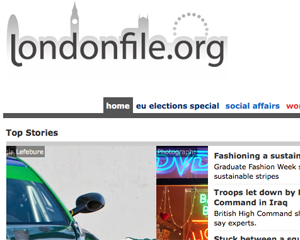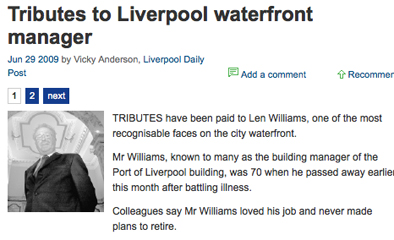A little while ago Journalism.co.uk asked for examples of journalism students’ projects. Feel free to send more, whether you’re midway through, or at the end, of a course.
As mentioned in the last post, City University MA International Journalism students (2008-2009) produced the London File, at this link. Now their course is over, the news stories are out-of-date but the sites is still live for a visit.
It’s a news site divided into eight sections (home / EU elections special / social affairs / world affairs / insider life / science & health / arts / sport / money), plus a campaign, which ‘aimed to explore the various forms of public surveillance and investigate issues relating to ways in which the government monitors the private lives of ordinary citizens.’
The team’s overall goal was to ‘to capture and report the realities and issues on the ground in London, as they happen’.
Here’s what their editor-in-chief, Annabel Symington, had to say at the end of the project:
“The London File was the last assessment for our MA, and it was really nice to all be working together on a project. We began planning the
site five weeks before we went live, and planned to keep up loading new content to the site on a rolling deadline for two weeks.“The two weeks were a really intense time. We were responsible for every aspect of the site, from getting the content to designing the pages, and it was a lot of work balancing all of the different jobs necessary – getting a website to work as well as going out and being journalists.
“Throughout the process we have been supported by our tutors who have been putting in as much time as we have. It’s certainly been a steep
learning curve. I don’t think that anyone had appreciated how much work needs to be put into a site before it actually goes live, and in
many ways we were trying to get a fully formed website running before we could even walk. But we got there in the end. The site looks great, despite the few hiccups we had along the way.”


